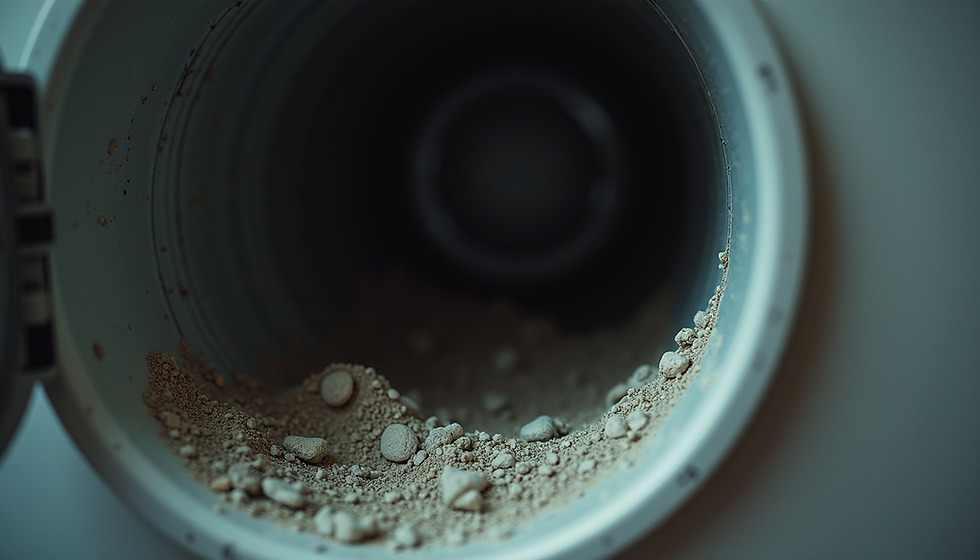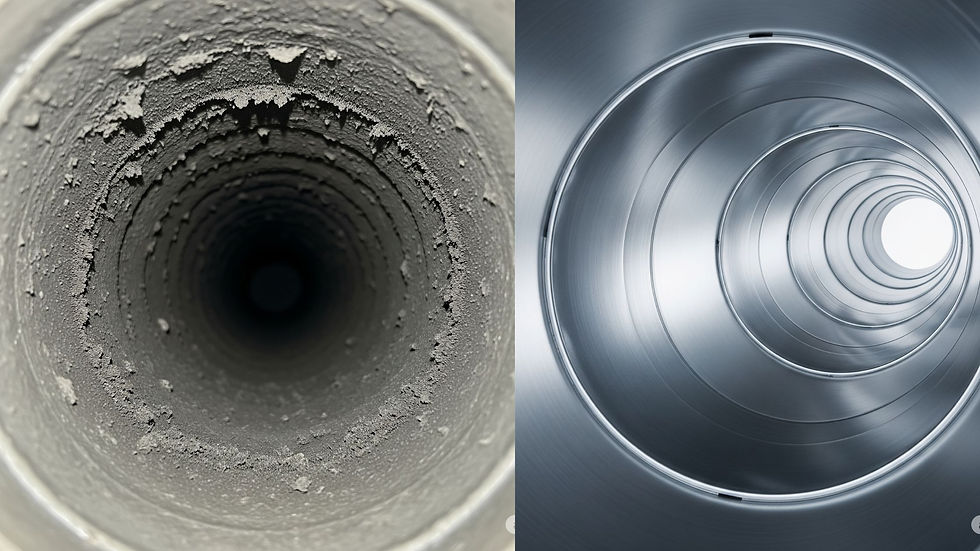Step-by-Step Guide: DIY Dryer Lint Screen and Lint Trap Care (Plus When to Call the Pros)
- Whole Duct

- Aug 12, 2025
- 2 min read
If you live in the San Francisco Bay Area, you probably use your dryer year-round. But did you know one of the simplest ways to keep it running safely and efficiently is by taking a few minutes to care for your dryer lint screen and lint trap?

1. Keep Your Lint Screen Clean — Every Load
After each load, pull out the lint screen, remove the lint, and make sure it fits back in snugly. According to the U.S. Fire Administration (usfa.fema.gov), failure to clean dryers is a leading cause of home clothes dryer fires.
Pro Tip: If the screen looks “gummed up” or lint is sticking to it even after you clear it, wash it gently with warm water and mild soap once in a while. Let it dry completely before putting it back.

2. Check the Lint Trap Monthly
The lint trap is the area under or behind the lint screen that can catch extra debris over time. Use your vacuum’s hose attachment or a lint brush to carefully reach in and remove build-up once a month.
This step isn’t just about airflow — it can prevent your dryer from running extra-long cycles and driving up your PG&E bill.
3. When to Call the Pros
DIY cleaning only goes so far. If you notice:
Clothes taking longer than usual to dry
A burning smell when the dryer is running
The dryer is hot to the touch
Lint collecting behind the dryer or outside vent flap not opening
…then it’s time for a professional dryer vent cleaning. Local pros (like us here in the SF Bay Area) use rotary brush systems and HEPA vacuums to safely remove built-up lint from deep inside the vent — without creating a mess in your home.
4. How Often to Clean
Lint Screen → Every load, before starting the dryer
Lint Trap → Once a month
Dryer Vent (Pro Service) → Once a year, or more often if you notice slow drying times
5. Safety First
The National Fire Protection Association (nfpa.org) recommends regular lint removal to lower fire risk and protect your appliance. This small habit not only keeps your home safer but can also help your dryer last years longer.
Bottom Line:Taking a few minutes to clean your lint screen and lint trap is like changing the oil in your car, simple, but essential. And when things go beyond your reach, it’s worth bringing in a trusted local professional to keep your home safe and your laundry routine running smoothly.



Comments